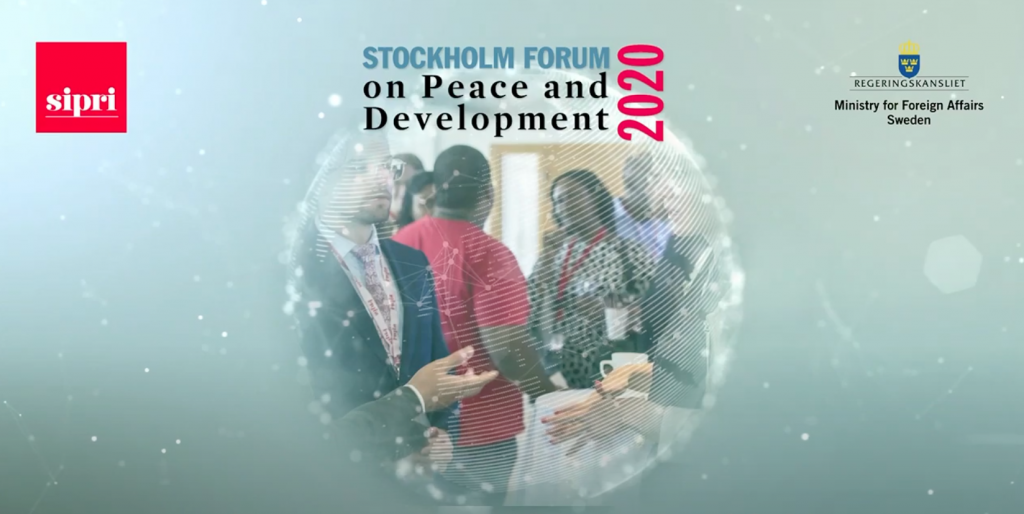“Sustaining Peace in the Time of COVID-19” was the topic of this year’s Stockholm Forum on Peace and Development, convened online from 11–22 May 2020 by the Swedish Ministry for Foreign Affairs and Stockholm International Peace Research Institute (SIPRI).
On 14 May, the Effectiveness of Peace Operations Network (EPON) and the Norwegian Institute of International Affairs (NUPI) hosted an open webinar to discuss how COVID-19 is affecting UN peacekeeping missions. The topic received a lot of interest and over 500 people watched the webinar on live stream.
UN peacekeeping and Covid-19
All the UN’s peacekeeping operations and special political missions – involving approximately 100,000 people in more than 30 countries – have been forced to take exceptional steps to adapt and cope with the COVID-19 pandemic.
During the conversation, the panel emphasized that the missions have had a rapid response, both in taking necessary measures to protect their personnel and avoid spreading the disease, but also in continuing to implement their mandated tasks. Missions have stopped the rotation of troops, created isolation facilities and limited their operational activity to the core of their mandates.
The panel highlighted that the current situation is creating challenges, but at the same time the missions are adapting and becoming more cohesive and focused on key mandated tasks. They have stepped forward in terms of digital communication and are benefitting from its potential. E.g. UNOWAS is conducting regional virtual conferences to communicate with and involve civil society, women groups, and youth. These efforts demonstrate how the missions are capable of learning and adapting to difficult circumstances, and this could in the future mean a shift in how UN peacekeeping missions operate.
As Dr Lise Howard emphasized, quantitative data show that it is unambiguous that the presence of UN peacekeepers means fewer civilian deaths. Peacekeepers save lives, and UN peacekeeping is an intervention that works. In order to meet the current and future crisis, the UN missions need to anticipate future challenges and work closely with regional actors, civil society and development partners to continue to be relevant and adaptive.
Watch the Webinar
The panel was chaired by Dr Cedric de Coning, Senior Research Fellow, NUPI and ACCORD, and was composed by:
- Mohamed Ibn Chambas, Special Representative of the Secretary-General and Head of the United Nations Office for West Africa and the Sahel (UNOWAS).
- Rania Dagash-Kamara, Chief of Policy and Best Practices in the Department of Peace Operations in New York.
- Lieutenant General Dennis Gyllensporre, (Swedish Armed Forces), Force Commander for the United Nations Multidimensional Integrated Stabilization Mission in Mali (MINUSMA).
- Dr Lise Morjé Howard, Professor of Government, Georgetown University.
- Leila Zerrougui, Special Representative of the Secretary-General and Head of the United Nations Stabilization Mission in the DR Congo (MONUSCO).
